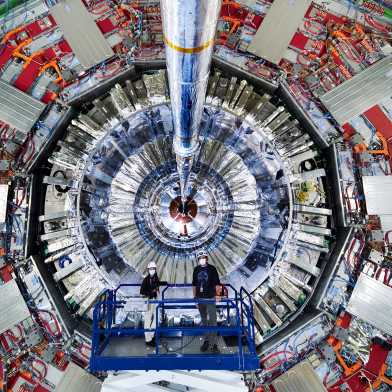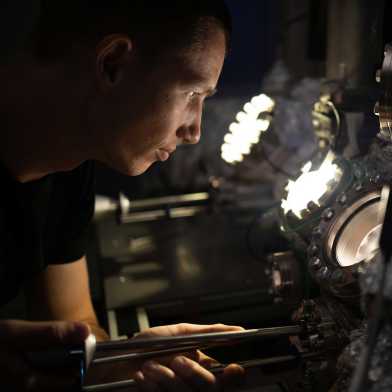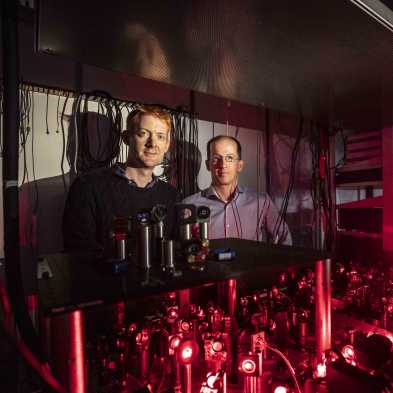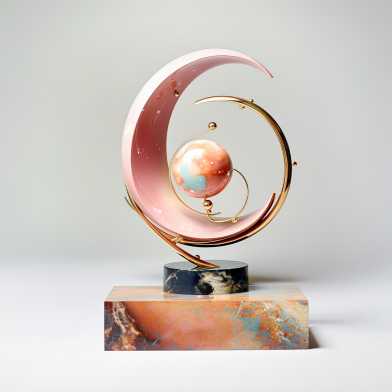News
News from the Dissertori group and the Institute for Particle Physics and Astrophysics.
Elaborate search for a new force
- Particle physics
- Research
- News
- Physics
- D-PHYS
- D-PHYS

Scientists are using trapped ions in experiments to search for signs of a new particle that could help explain the mysterious dark matter. Researchers at ETH Zurich are combining their results with findings from teams in Germany and Australia.
Higgs, hadrons, big ideas: CERN experiments receive Breakthrough Prize
- Particle physics
- Society & Institution
- News
- The latest honours and prizes
- Physics
- D-PHYS

At a ceremony in Los Angeles on 5 April, the four major experimental collaborations at CERN’s Large Hadron Collider (LHC) – ALICE, ATLAS, CMS and LHCb – were awarded the prestigious Breakthrough Prize in Fundamental Physics.
An alternative way to manipulate quantum states
- Quantum sciences
- Research
- D-MATL
- News
- Particle physics
- Materials science

Researchers at ETH Zurich have shown that quantum states of single electron spins can be controlled by currents of electrons whose spins are evenly aligned. In the future, this method could be used in electronic circuit elements.
A new kind of magnetism
- Physics
- Research
- News
- Particle physics
- Quantum sciences
- D-PHYS

ETH Zurich researchers have detected a new type of magnetism in an artificially produced material. The material becomes ferromagnetic through minimization of the kinetic energy of its electrons.
Two projects launched to connect error-corrected qubits
- Quantum sciences
- Research
- Nanosciences
- Electrical engineering
- Computer and information technology
- News
- Particle physics
- Engineering sciences
- Physics
- D-PHYS

ETH Zurich is participating in two quantum computing projects that are being financed by IARPA, the US research funding agency, with up to 40 million dollars. Both projects aim to connect two error-corrected qubits with one another and thus lay the foundation for future quantum computers.
A contradiction at the heart of physics
- Globe magazine
- Focus
- Particle physics
- Physics
- Quantum sciences
- D-PHYS

Quantum mechanics describes the forces that hold the world together on the smallest scale. The theory of relativity explains the world at the cosmic level. The two seem incompatible – and a unifying theory is nowhere in sight.